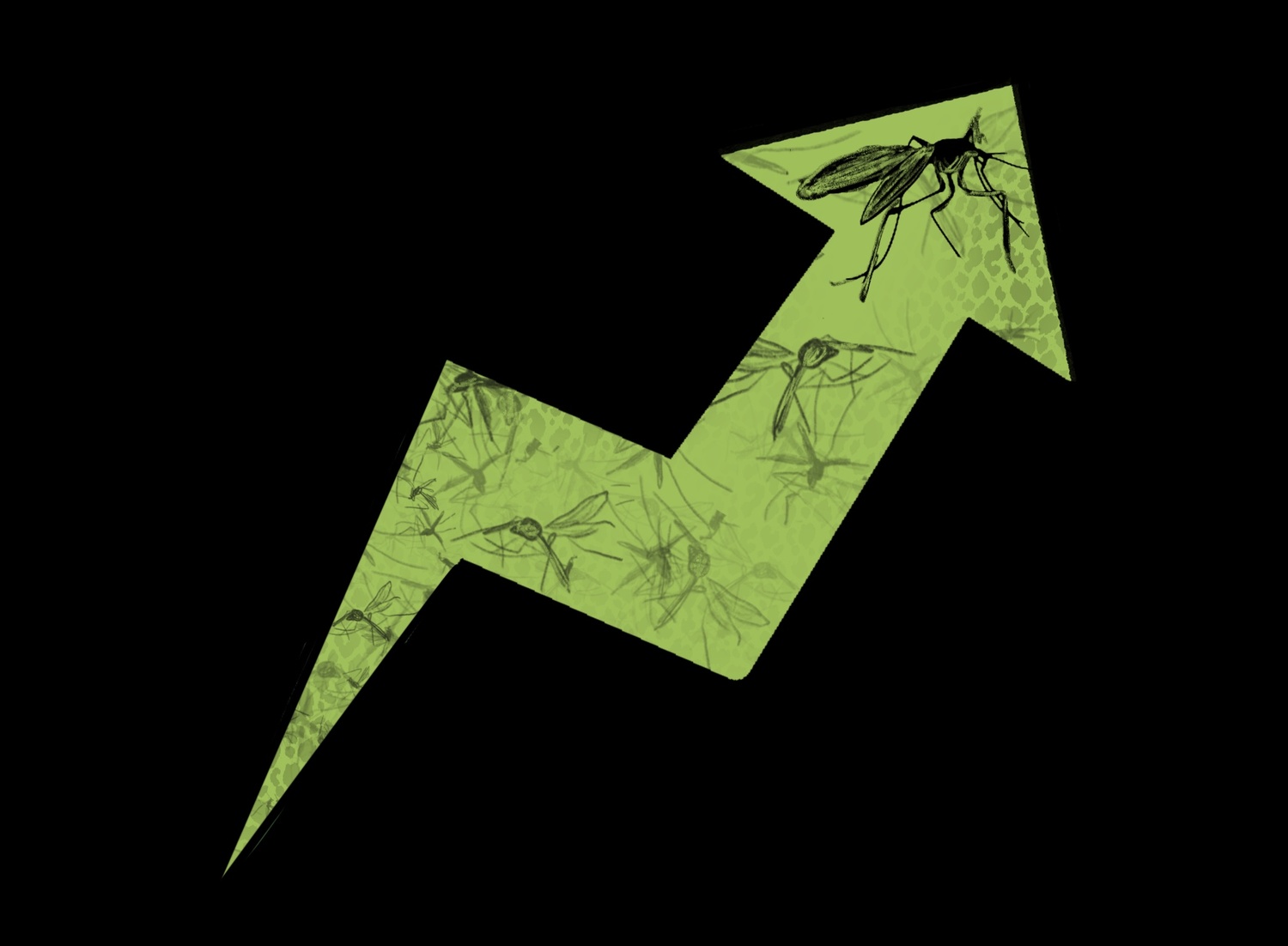
News
Harvard Grad Union Agrees To Bargain Without Ground Rules

News
Harvard Chabad Petitions to Change City Zoning Laws

News
Kestenbaum Files Opposition to Harvard’s Request for Documents

News
Harvard Agrees to a 1-Year $6 Million PILOT Agreement With the City of Cambridge

News
HUA Election Will Feature No Referenda or Survey Questions
Cambridge Is at High Risk for West Nile Virus. Here’s What to Know.

Last month, the Massachusetts Department of Public Health declared parts of Middlesex County — including Cambridge — as high-risk areas for West Nile Virus, a mosquito-borne virus that can cause serious medical issues.
On Friday, the department reported the 11th human case of West Nile Virus in the state this year. State officials have also been tracking a separate mosquito-borne illness, Eastern Equine Encephalitis, and have raised risk levels in other parts of Middlesex County, including Concord.
Sam Lipson, an official at the Cambridge Public Health Department, said that Massachusetts typically sees a few human cases of West Nile Virus each year, adding that cases tend to follow “a cyclical pattern.”
But he added that the disease has been particularly prevalent this year.
“We have reason to believe, based on the number of human cases and the surveillance data from mosquito pool testing for the virus, that this is a moderately bad year for West Nile,” Lipson said.
Here’s what to know about the virus.
What is West Nile Virus?
The mosquito that carries West Nile in the Cambridge area — Culex pipiens — is different from the more aggressive tiger mosquito, often active during the day and often mistaken as a carrier.
Lipson said that most bites from Culex pipiens occur “while people are sitting quietly outside in their backyard” or indoors with “poor screening or no screening.”
According to the Centers for Disease Control, contracting WNV can lead to fever, body aches, disorientation, paralysis, and death. Still, Lipson noted that while West Nile virus can cause serious illness, the risk is low.
“West Nile Virus, when it infects people, is estimated to have serious consequences on only about one to one and a half of those who are infected,” Lipson said. “Some number of those people who get a serious infection could die, and there are a few deaths every year across the country.”
The risk is particularly significant for individuals over 60, and those who are immuno-compromised, who should take extra precautions.
Where has West Nile Virus been detected?
According to the Massachusetts DPH, recent individuals who contracted WNV within Massachusetts were exposed in southern Bristol County, Suffolk County, and Barnstable County.
The most recent case, reported Friday, was a man in his 60s who had recently traveled out-of-state.
“Although the person’s recent travel outside of Massachusetts means the exact location of exposure is uncertain, there is a possibility he could have been exposed within the Greater Boston area, which is already known to be at high risk for WNV,” the DPH wrote in a statement on their website.
Last week, the department reported 314 cumulative WNV-positive mosquito samples from Barnstable, Berkshire, Bristol, Dukes, Essex, Franklin, Hampden, Middlesex, Norfolk, Plymouth, Suffolk, and Worcester counties.
What are Harvard and Cambridge doing about it?
Lipson said Cambridge officials are focusing their prevention efforts on treating storm drains, which can serve as breeding pools for virus-carrying mosquitoes.
“That includes somewhere in the order of 6,600 storm drains, and they are treated with a bacterial larvicide to prevent those drains which can collect small amounts of water, which can remain undisturbed for periods of time and could potentially be breeding grounds,” Lipson said.
He added that the city is working with Harvard and MIT on mosquito control efforts.
“We do work with both universities to talk about to what degree they’ve covered their own storm drains, which is a really important habitat that’s out of sight,” he added.
In a statement, Michael Connor, a spokesperson for Harvard Campus Services, wrote that Harvard Department of Environmental Health and Safety personnel “inspect sites for mosquito development and ensure that these areas are drained or treated as appropriate.”
“EHS works closely with licensed pesticide applicators from Harvard Landscape Services, as well as with commercial landscapers, to treat catch basins (storm drains) and area drains across the campus,” Connor wrote. “Timed applications of environmentally appropriate larvicides are used to effectively and safely reduce the emergence of adult mosquitoes that would otherwise contribute to annoyance and virus transmission risk.”
He added that University staff have issued guidance to affiliates recommending they cover up exposed skin and apply insect repellant to minimize the risk of infection.
But unlike EEE, which can require more drastic preventative measures like canceling nighttime events and aerial spraying, Lipson said the lower risk of severe illness due to WNV means that such measures are unnecessary.
“It’s more about messaging personal risk and how to mitigate and reduce that risk,” he said.
—Staff writer Alex Chou can be reached at alex.chou@thecrimson.com.
—Staff writer Camilla J. Martinez can be reached at camilla.martinez@thecrimson.com. Follow her on X @camillajinm.
Want to keep up with breaking news? Subscribe to our email newsletter.
Most Read
- Harvard Dismisses Leaders of Center for Middle Eastern Studies
- Harvard Agrees to a 1-Year $6 Million PILOT Agreement With the City of Cambridge
- FAS Dean Asks Center Directors To Show Compliance With Viewpoint Diversity Guidance
- 2 Years After Affirmative Action Ruling, Harvard Admits Class of 2029 Without Releasing Data
- Adams House Resident Dean Issues Warning to Student Who Booked Room for AFRO Event
